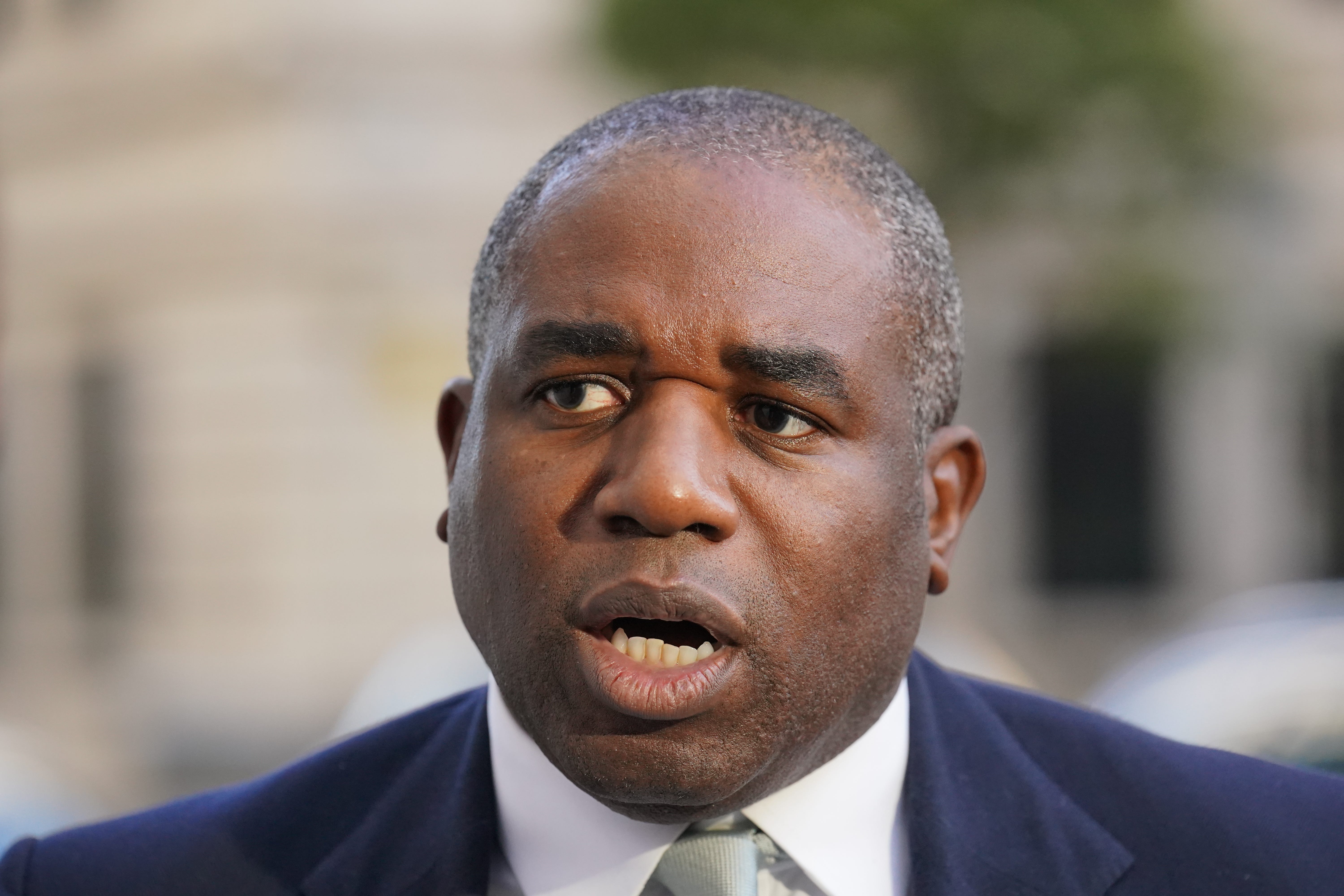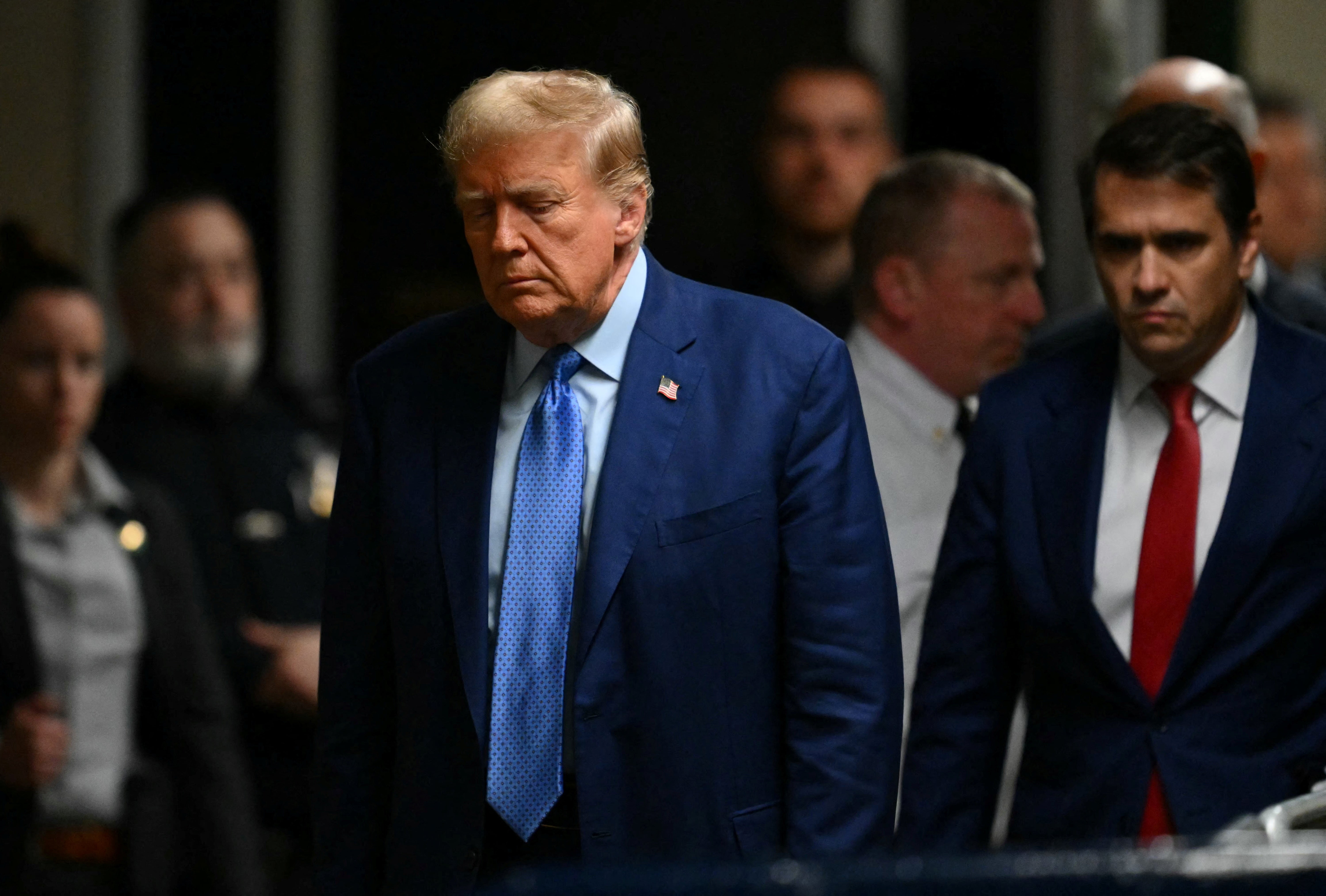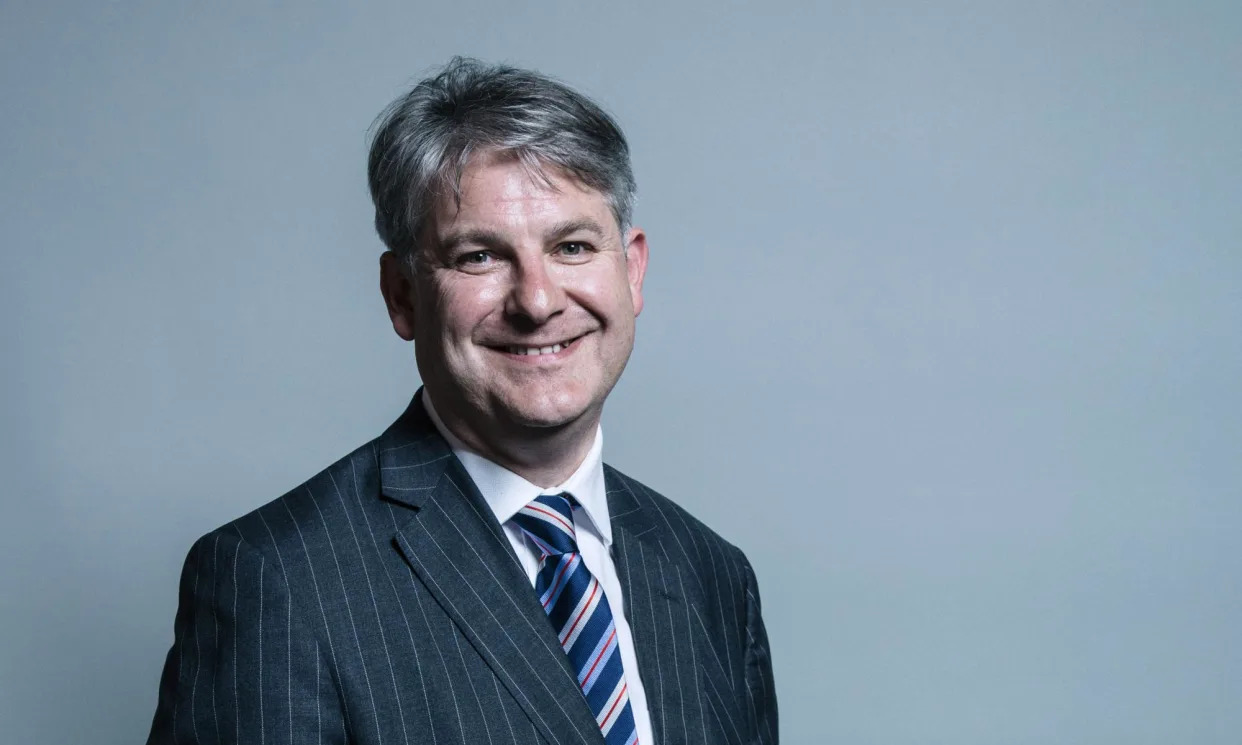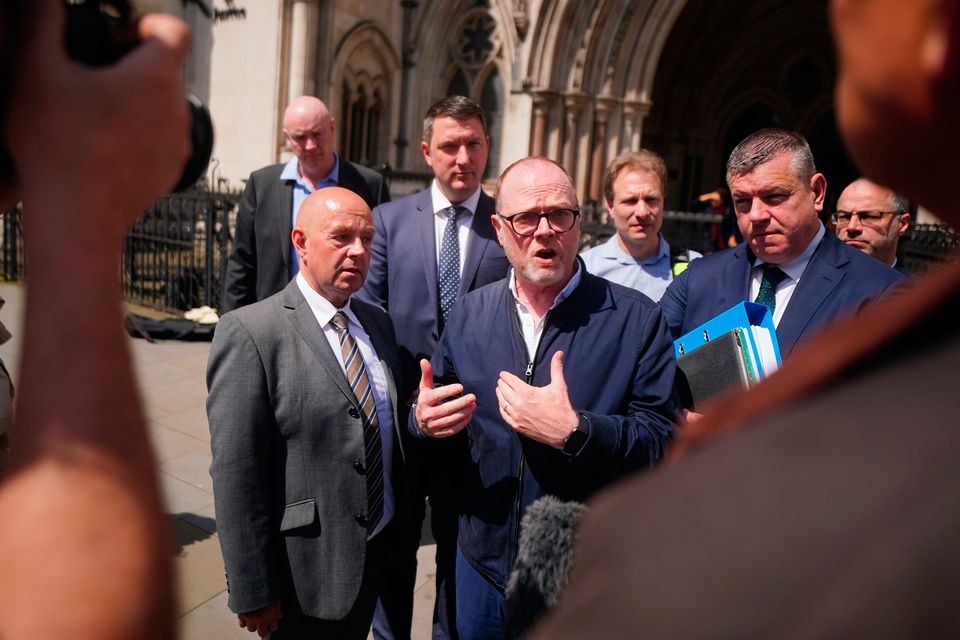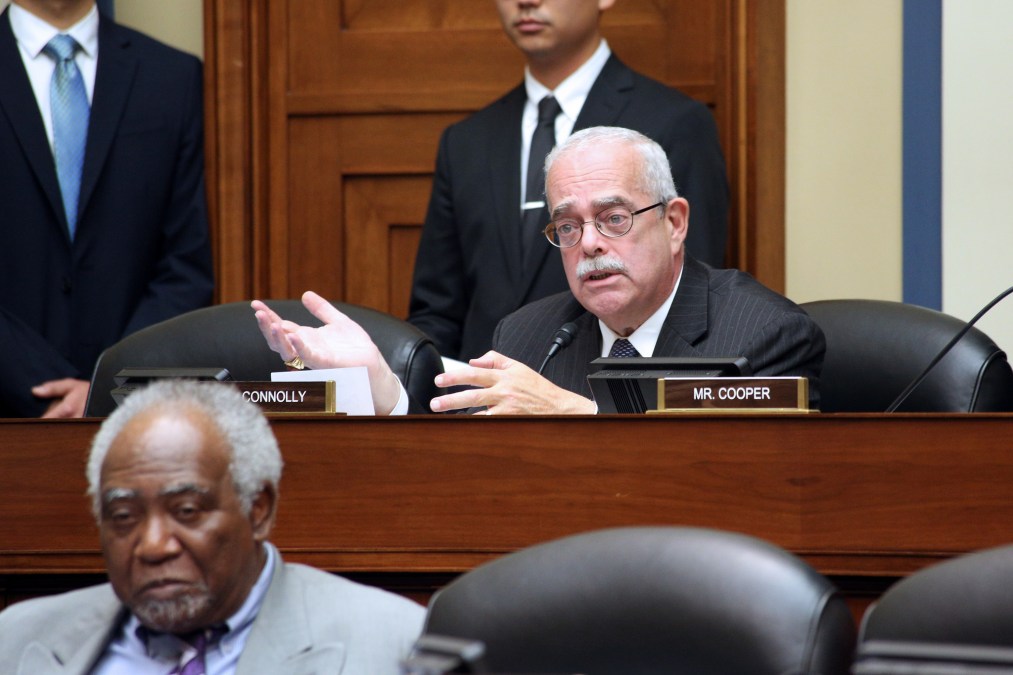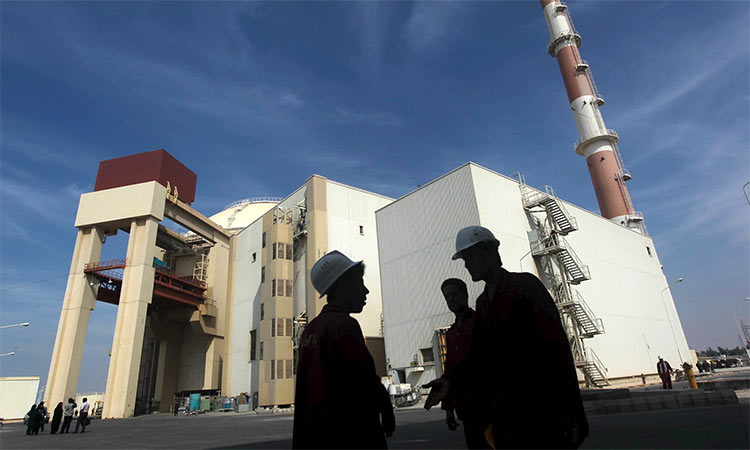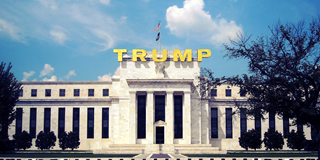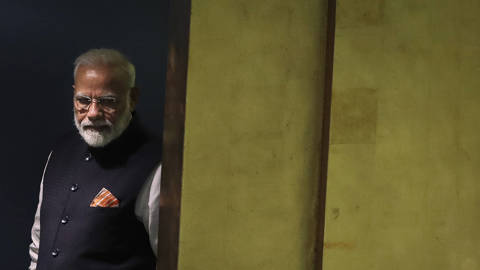WASHINGTON (JTA) — As Israel prepared last week to launch a major operation in Rafah over the concerns of the White House, the Biden administration made rare use of a pressure tactic and held up the delivery of large bombs.
“We have paused one shipment of weapons last week,” a senior administration official told the Jewish Telegraphic Agency Wednesday in an email.
The shipment, the official said, included 1,800 bombs weighing 2,000 pounds each, and 1,700 bombs weighing 500 pounds each. The official said the White House was concerned about how Israel would deploy the bombs among Rafah’s crowded population and began reviewing weapons shipments last month.
“We are especially focused on the end-use of the 2,000-lb bombs and the impact they could have in dense urban settings as we have seen in other parts of Gaza,” the official said.
Defense Secretary Lloyd Austin confirmed the pause in Senate testimony later Wednesday morning, less than two days after Israel announced that its invasion of Rafah had begun.
“We are currently reviewing some near-term security assistance equipment in the context of unfolding events in Rafah,” Austin said in the testimony. “As we have assessed the situation, we paused one shipment of high payload munitions.”
The pause in U.S. aid to Israel is the first to be confirmed in decades and marks a shift in the Biden administration’s posture toward the war. In the seven months since Hamas attacked Israel, President Joe Biden has supported Israel — including in a speech at the U.S. Capitol on Tuesday — and had previously resisted ending or conditioning American military aid.
The official said the pause has yet to be reversed, adding that Israel will still receive all the aid allocated by Congress.
“We have not made a final determination on how to proceed with this shipment,” said the official, adding that officials are also reviewing the delivery of devices that add guidance to bombs, called JDAMs.
The announcement of the pause set off alarms among pro-Israel organizations.
“Delaying this arms transfer is a dangerous and counterproductive message,” the pro-Israel lobby AIPAC said Wednesday on X, formerly Twitter. “It emboldens Iran, Hamas, and Hezbollah, and undermines America’s commitments to all our allies. Congress must demand the Biden Admin reverse this delay and ensure Israel has what it needs to win this war.”
The holdup last week came as Israeli Prime Minister Benjamin Netanyahu was indicating that the military would invade Rafah, a city on Gaza’s border with Egypt that Israel says is the final redoubt of Hamas. The invasion commenced on Monday after another attempt at a ceasefire agreement fell through.
Biden and other world leaders have opposed the invasion because more than 1 million displaced Palestinians have sought refuge there.
“The U.S. position has been that Israel should not launch a major ground operation in Rafah, where more than a million people are sheltering with nowhere else to go,” the White House official said. “We have been engaging in a dialogue with Israel in our Strategic Consultative Group format on how they will meet the humanitarian needs of civilians in Rafah, and how to operate differently against Hamas there than they have elsewhere in Gaza.”
In his Senate testimony, Austin said the safety of the civilians was paramount. “I think we’ve also been very clear about the steps that we’d like to see Israel take to account for and take care of those civilians before major combat takes place,” he said.
The statements by Austin and the official appeared to confirm reports that the meetings have not gone well, because, in the administration’s view, Israel has not adequately explained how it plans to safely evacuate and house the displaced Palestinians.
“Those discussions are ongoing and have not fully addressed our concerns,” the official told JTA.
Biden has been under pressure from some progressives within and outside of his party to suspend assistance to Israel as Palestinian casualties have mounted, now topping 34,000, according to the Hamas-run Gaza health ministry. Austin was reminded of those pressures during his testimony when protesters shouting, “Free Palestine!” were removed from the gallery.
Biden has said Israel’s bombing of Gaza, which has reduced large parts of the enclave to rubble, has been “indiscriminate.” Israel says the bombs are necessary to reach an enemy that has built a massive militarized infrastructure in an underground network of tunnels.
The confirmation of the pause came a day after the president, in a Holocaust Remembrance Day speech, reaffirmed what he called his “ironclad” commitment to Israel. And the White House official emphasized that the $26 billion Congress allocated last month in emergency and humanitarian assistance to Israel and Gaza remains untouched.
“We are committed to ensuring Israel gets every dollar appropriated in the supplemental,” the official said.
Now, Biden administration officials are watching the Rafah operation unfold and expressing cautious optimism that Israel appears to be limiting its attacks to minimize civilian casualties.
“We’re going to be watching it closely, but how they [Israeli officials] have described this is not of a size, scale, duration and scope that one could equate to a major ground operation,” John Kirby, the National Security Council spokesman, said Tuesday in a call with reporters.
The weapons holdup is the first confirmed, on-the-record pause in U.S. defense assistance to Israel since 1983, when President Ronald Reagan delayed the delivery of combat aircraft to Israel to pressure Israel into withdrawing from Lebanon. Another oft-cited pause — in the delivery of Hellfire missiles during the last major war in Gaza in 2014 — was later said to be a technical issue, not one of policy
The American Jewish Committee, like AIPAC, called for ending the pause but also thanked Biden for supporting Israel since Oct. 7.
“AJC is grateful for the unprecedented security assistance the U.S. administration has surged to Israel as it defends itself against Hamas terrorists, and for the ongoing, close collaboration between U.S. and Israeli officials,” the group said in a tweet.
“This support must continue without any additional conditions or delays, so Israel can defend itself from the multiple threats it faces and prevent Hamas’ stated goal of continued, repeated attacks,” it said. “We expect the Administration to swiftly ensure all necessary assistance is delivered.”
JEWISH TELEGRAPH AGENCY
